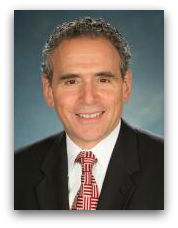
Gerald Frankel, a technical editor of the Journal of The Electrochemical Society, corrosion expert, and open access advocate.
The aftereffects of the Flint water crisis is still felt strongly four years later. Just this year, dozens of Flint, Michigan, residents were outraged by the state’s decision to end a free bottled water program. A program that came into effect after it was discovered the water in Flint was unsafe for consumption.
The catastrophe came to fruition when measures were taken by elected officials to cut costs. The result of which led to tainted drinking water that contained lead and other toxins.
Gerald Frankel, a professor of materials science and engineering at The Ohio State University, touched on the matter in an ECS Podcast interview.
“It was avoidable,” says Frankel, who explained that because water is corrosive, drinking water is treated to reduce the corrosive effects on the pipes that carry it. However, due to financial issues the town of Flint was facing, their source of the water changed from Lake Michigan to the Flint River. “And they decided not to do this chemical treatment.”
Phosphates are added to maintain a protective, corrosion resistant coating on pipes that carry the water supply. “They saved money by not doing that,” says Frankel. “The mains started corroding, and then there was a cascade effect that promoted corrosion of the lead distribution pipes, and so these protective coatings were lost, which allowed the corrosion to occur.”
Frankel says corrosion is a process in which metal creates ions that are dissolved in solution, and in this case, they were consumed. He says the public needs to be able to trust in the water they are drinking.
“Those are fundamental rights to breathe clean air and drink clean water,” says Frankel.
He suggested some tips for consuming clean water:
- Using a filter to remove any possible unwanted lead
- Speaking to your water agency. Find out where your water is coming from and what material the pipes are made of
- Flushing standing water out of pipes
Frankel has served as chair of the Society’s Corrosion Division and was named ECS fellow in 2006. His research efforts focus on topics ranging from degradation of materials to atmospheric corrosion. In 2012, he was appointed by President Obama to the Nuclear Waste Technical Review Board.
If you’re interested in learning more about corrosion science and technology, visit us at AiMES 2018 in Cancun, Mexico from September 30 – October 4, 2018.
Hear what Frankel has to say about corrosion and our failing infrastructure below.

